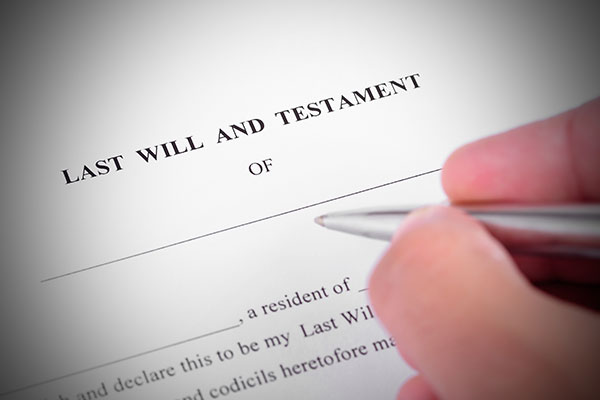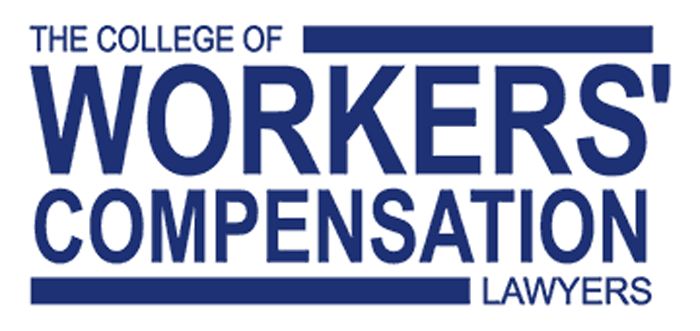Few people think about their own death while they are alive and healthy—let alone plan for it. If not enjoyable, end-of-life planning is an important and essential step for everyone, even if you’re young and healthy.
Many folks make the mistake of delaying estate planning because of their age, health, lack of dependents or lack of assets and property. But the unfortunate reality is that tragic, unforeseen accidents happen all the time and your life can be cruelly cut short in an instant. If this happens and you don’t have an end-of-life plan, then you’re leaving all of your hard-earned savings and assets in the hands of Indiana’s Probate Court.
There’s no better time than right now to start creating an end-of-life plan, while you’re still able to decide how you want to distribute your assets and support your surviving loved one when you are gone.
Get started discussing your legal options with a knowledgeable and experienced Fort Wayne wills and trusts attorney at Finderson Law.


Why Don’t You Have a Will or Estate Plan?
If you don’t yet have a will or living trust, you’re not alone.
An estimated 6 in 10 Americans don’t have a will or living trust, according to AARP. Of the 40 percent who do, a vast majority are older Americans (age 72 and older). While this fact makes logical sense since we tend to think about end-of-life planning more as we age, this line of thinking that you’re too young and healthy to need a will fails to recognize that sadly not all of us make it to old age.
Here are several other common (but mistaken) reasons why people delay estate planning, as well as the arguments for why this is no excuse to put off creating your will any longer:
- “I’m not wealthy enough to need a will.” This is one of the most common and widespread misconceptions. Rich or poor, everyone needs a will to provide instructions on how their property, belongings, keepsakes, family heirlooms, mementos and other personal possessions are to be distributed amongst your loved ones.
- “I don’t have any children or dependents.” If you don’t have a spouse or children, in your will you can designate other surviving family members (such as parents, siblings, etc.) and significant others (spouse, partner, etc.) as a beneficiary of your estate. Even if you have no beneficiaries, through the process of estate planning you can choose to send any assets you own to charities you support upon your passing.
- “Estate planning is too much work.” Anything worth doing takes work, but you might be surprised at just how easy and fast it is to create a will or living trust, especially when you enlist the help of an estate planning attorney. The time and effort it takes to create a will vary greatly depending on the level of detail you wish to go into. If you want to keep it simple and straightforward, that’s something we can definitely help you with.
- “Estate planning is too expensive.” While it’s true that hiring an estate planning lawyer will cost money, people often fail to consider the cost of NOT creating a will. The intestate probate process is time-consuming and expensive when the state court has to get involved, which ultimately reduces how much the deceased person’s surviving loved ones are able to receive. Neglecting to create a will now will cost your loved ones later. Plus, you might be pleasantly surprised at how affordable our estate planning services are, and we are willing to work with you to set up a reasonable payment plan.
- “I’m uncomfortable sharing personal information and family details.” At times, estate planning can be uncomfortable, difficult and deeply personal for some people, particularly when deciding how to distribute their wealth to loved ones. But ultimately, facing these discomforts now will help avoid more awkwardness and family contention later on if you were to pass away without a will. What’s more, our compassionate attorneys specialize in providing a safe, confidential space to listen to your desires and develop custom-tailored wills that help satisfy even the most complicated and sensitive family situations.
- “I don’t think I need a will.” Individuals who don’t understand the real benefits of estate planning (and the consequences of not having a will) often tend to brush aside this important process, believing it to be an unnecessary and costly step they can skip. However, burying your head in the sand is not an option when it comes to end-of-life planning since without a will a probate court will dole out your assets how (and to whom) it seems fit, regardless of your personal desires and preferences. What’s more, going through probate costs money, which is paid for by your hard-earned assets — leaving your loved one with less.
- “I’m not sure where to start.” While we understand that beginning the estate planning process can be intimidating, the truth is that it doesn’t take much effort or organization if you get help from an experienced estate planning attorney. Simply schedule a consultation with a lawyer near you and they can walk you through the process step-by-step.
Indiana Probate Laws
Each state has its own laws pertaining to probate, wills and trusts. Indiana’s code is laid out in Title 29. This code covers all probate requirements, including procedure, petitions, forms, distribution, appeals, inheritance and other legal issues.
All probate matters in Indiana are handled by a circuit or superior court, depending on the county where the deceased person lived. For example, probate cases in and around Fort Wayne are handled in Allen Superior Court located at the Allen County Courthouse.
In Indiana, if your estate is valued at $50,000 or more and you don’t have a trust, then your family will need to go through the probate process. If your estate is worth less than $50,000, your loved ones will not need to undergo probate. Instead, they will need to submit an affidavit to a small estate administrator in order to transfer ownership of your assets and establish that they are entitled to your estate.
When probate is indeed required, there are 2 options to move forward:
- Supervised probate. A probate court must review and approve all steps taken by the designated executor of the estate.
- Unsupervised probate. The court doesn’t have to oversee every step taken by the executor, and therefore this option is easier and less expensive. However, this option is usually only allowed if the deceased individual had more assets than debts and the will explicitly allows unsupervised probate or all potential beneficiaries agree.
If you set up a trust, then your executor and beneficiaries can avoid probate regardless of how much your estate is worth. If you have a will, Indiana law requires that your will be presented to the court after your passing in order to determine that the will is valid and resolve any disputes. This process is not as formal as probate, but a necessary step nevertheless.
Though each case can vary greatly, a general overview of the probate process in Indiana goes as follows:
- Validating the will. The probate process typically begins when someone in possession of the will presents the will to the probate court. The will should be presented within a reasonable timeframe, or else a personal representative of the estate may compel the holder of the will to do so. Executors of small estates (less than $50,000) must wait 45 days to file an affidavit.
- Naming an executor. One of the first steps in the probate process is designating a personal representative as the legal executor of the will and estate. This individual may be explicitly named in the will or trust. If not (or if the named executor is contested by the family), then the court may name another person to serve in this role.
- Asset inventory and notifying creditors. The “clock” officially starts ticking when an executor receives a letter of administration appointing them to act on behalf of the estate. This appointed executor must inventory the deceased’s assets and submit a report within 60 days. The executor must also publish notices of probate in a local newspaper and notify any known creditors of the notice.
- Settling creditor claims. Creditors have 3 months to file a claim against the estate.
- Paying taxes and debts. Any outstanding taxes must be paid and tax returns filed. In addition, any other outstanding debts must be paid by liquidating assets if necessary.
- Final accounting. After all debts and liabilities have been paid off and assets sold, the executor must present a final accounting of the liquidated estate to the court.
Estate Planning FAQ
What’s the difference between wills and trusts?
Wills and trust are both elements of estate planning that help to ensure your assets are distributed as you see fit after you pass away; however, there are some key differences that are important to understand between these 2 types of end-of-life planning.
A will is a written document that contains a person’s desires on what is to become of their property, savings and other assets in the event of their death, as well as who is to be appointed guardian of the deceased’s minor children. Wills can only become active following one’s death, and all wills must go through a legal process known as probate where an authorized court administrator reviews the will.
A trust is similar to a will except that it becomes active on the day it is written, and a person can choose to distribute their assets before their passing. Irrevocable trusts cannot be changed and are often created for tax purposes, whereas a living trust can be altered by the “grantor.” Unlike wills, trusts do not have to go through probate and cannot be contested.
Determining whether you need a will or a trust (or both) will depend on your personal circumstances and wishes. There are certain advantages and disadvantages to each option, so we recommend consulting with an estate planning attorney to find out which option is best for you and your family.
Who should have a will?
It’s a common myth that only the rich and wealthy need to worry about estate planning. The truth is that every adult must consider estate planning if they care about what happens to their personal belongings and assets when they’re gone. A will and/or trust ensures that your wishes are understood and followed after your death.
More specifically, you should have a will and/or trust if you have any of the following:
- A spouse/partner/significant other
- Child or children
- Positive net worth
Why is having a will important?
If you die without a will, it will be up to a probate court to determine what happens to all of your personal belongings, savings, property and other assets. Typically, these assets will be distributed amongst your surviving spouse, children and family members; however, the court will take a substantial amount for itself to cover its own costs associated with handling your affairs.
What’s more, the probate process can be exhausting and time-consuming. In Indiana, conducting probate generally takes 6 months to a year in the best case scenarios—though this period can be extended if there is a dispute over the will or assets/debts that are unaccounted for in the estate plan. Creating a comprehensive will now saves your loved ones money, time and stress when you die.
Without a will, you will also have no say in how your assets are distributed—or to whom. By neglecting to create a will, you are leaving your legacy in the hands of a court administrator who knows nothing about you and your wishes.
Other benefits of having a will and/or trust include:
- Designating a guardian for your minor children
- Designating an “executor” of your estate
- Choosing who is granted your assets and how much
- Finding a new home for your surviving pets
- Leaving instructions for closing your financial and digital assets
- Minimize family distress and disputes
- Provide your funeral/burial instructions
- Donate to charities and organizations you love
- Peace of mind knowing that your affairs are in order
What happens if I die without a will?
When someone passes away in Indiana without a will (known as “intestate”), the probate court is in charge of determining where the deceased’s remaining assets go (and to whom). These assets can include any property the deceased owned, their bank accounts and savings, real estate, vehicle and any other valuables they owned at the time of death.
After this often lengthy and costly legal process, the deceased’s remaining assets are distributed to surviving family members and dependents based on what the court decides. Indiana intestate succession laws generally give priority to the deceased’s surviving spouses and children, followed by parents, siblings, grandparents, cousins, nieces and nephews.
If the deceased individual has no dependents or family and died without a will, then the state will get your assets and “escheat” them into the state coffers.
Can I buy an online will package?
There are many estate planning packages and templates available online but we do NOT recommend buying these products and there’s an important reason why. Every state has its own rules and requirements when it comes to creating a will, and all of these guidelines are rarely reflected in generic wills and trusts found online. Failing to follow these requirements or neglecting to provide sufficient clarity and detail in your estate plan can cause tremendous confusion after your death and ultimately leave your wishes unfulfilled.
Our attorneys will help create a custom estate plan for you that is tailored to your individual needs, wishes and family circumstances. We can make sure that your last will and testament will be carried out to your preferences.
Don’t Let the Law Determine Your Legacy
Without an estate plan, court officials who you’ve never met and who don’t know you will ultimately determine how to handle your life’s legacy. Meet with our will and trust attorneys in Fort Wayne, IN as soon as possible to get your affairs in order and get peace of mind knowing that your final wishes will be followed.
At Finderson Law, our team will take all the time needed to listen to your desires, break down complicated legal jargon into simple explanations, manage the burdensome paperwork and streamline the estate planning process to be as smooth and seamless as possible.
With our years of experience and knowledge, we are fully prepared and equipped to help guide you through the entire process step-by-step and provide the resources you need to make informed decisions that are best for you and your family.
REVIEWS FROM OUR CLIENTS
Great to work with. Went above and beyond to help us. Very professional and personable. They cared about me and getting done what was needed. Would highly recommend this firm. - D.P.
Always on top of the process and keeps in contact. Communication to me is key regardless if they are making progress or not and they were always answering the phone or returning calls promptly and answering any questions along the way. Top notch and while I hope to never use them again, I highly recommend them. Excellent and phenomenal! - H.H.
Roger went above and beyond for me and got me the results I needed. I'm extremely satisfied with how things turned out! Hopefully, I will not have to visit the office again; but, if I do need a lawyer, I know where to go! - T.




 744 E Till Rd, Suite 102
744 E Till Rd, Suite 102

